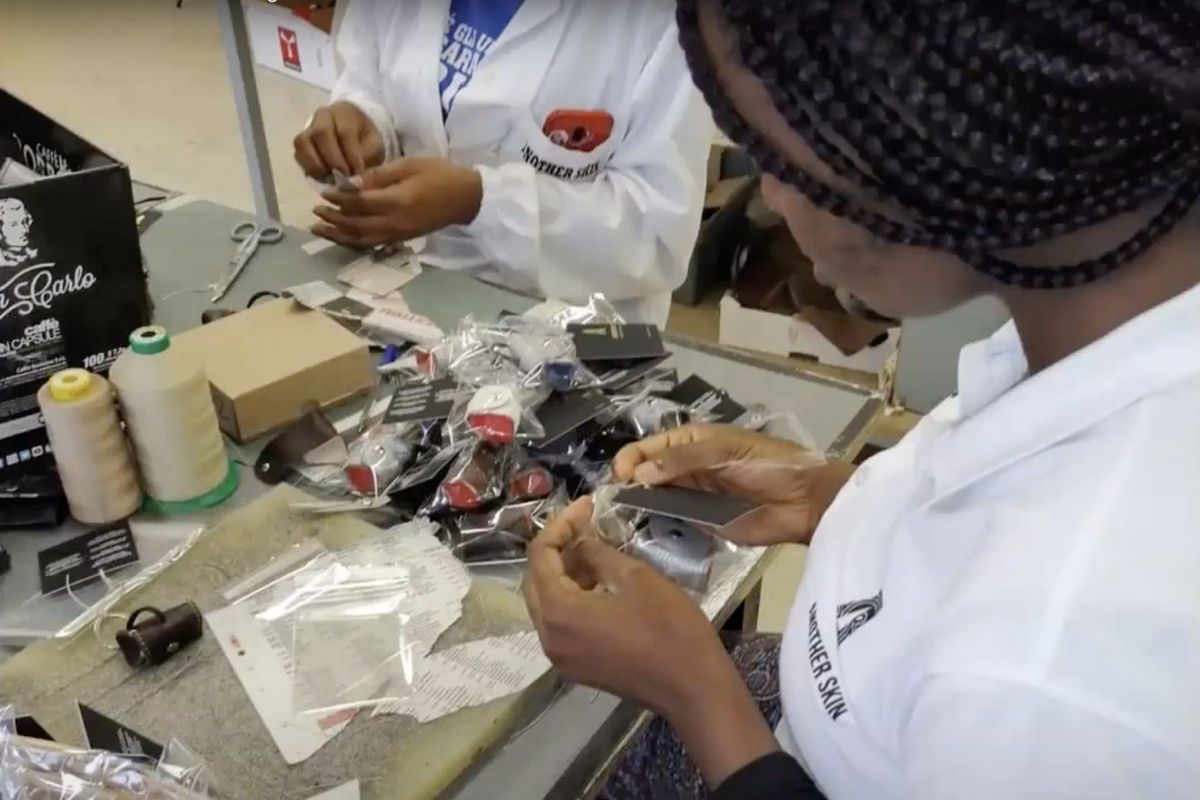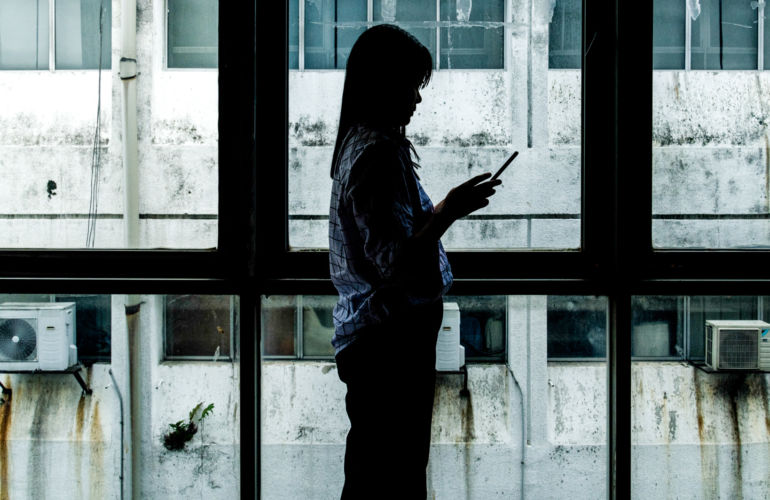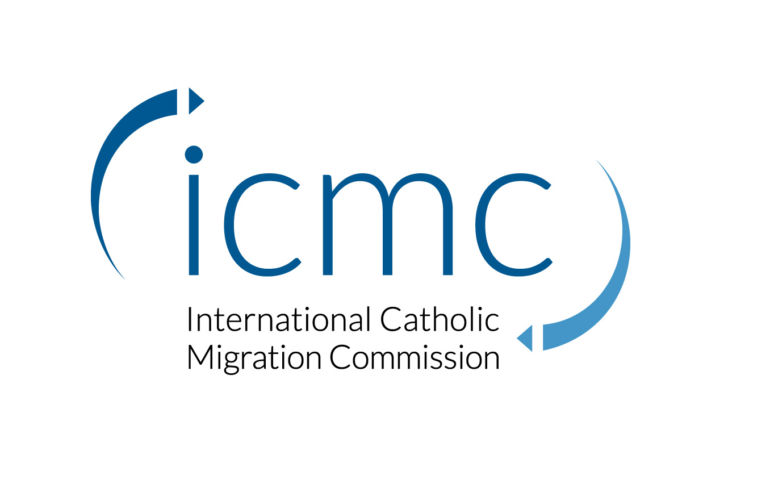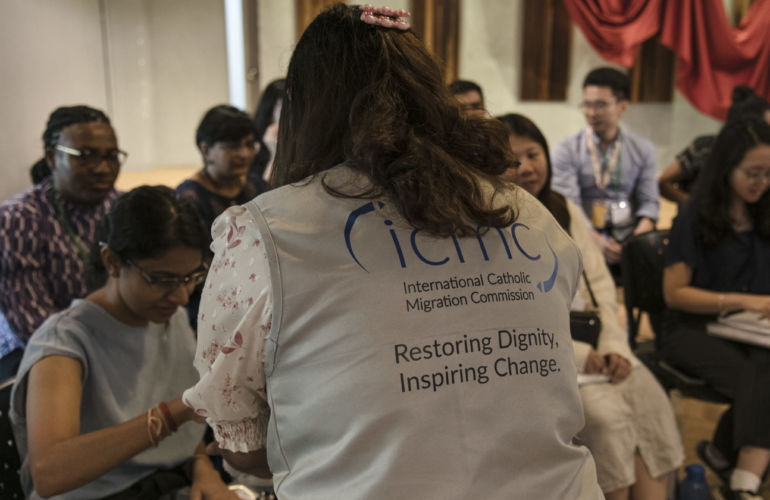Building Integration Pathways With Survivors of Human Trafficking
For migrant survivors of sex trafficking to fully integrate into society, they need support tailored to their specific needs and history. A webinar organized by ICMC Europe and its partners in the Right Way project highlights the importance of adopting a person-centered approach.

COVID-19 has left trafficked people and those at risk of trafficking more vulnerable than ever. Participants of the 19 November Right Way webinar discussed this heightened danger and the strategies to support migrant trafficking survivors’ integration in Europe.
“With the movement restrictions and the interruption of numerous economic activities, traffickers are seeking to maintain their revenue through other forms of exploitation,” explained Mr. Valiant Richey, Special Representative and coordinator for Combating Trafficking in Human Beings for the Organization for Security and Co-operation in Europe.
As prostitution moves online, victims become more isolated, and traffickers’ control over them increases. At the same time, many people are facing heightened economic vulnerability, which leaves them at a higher risk of being enticed by traffickers. Richey stressed the critical need for governments to continue investing in anti-trafficking programs, including emergency care, psychosocial support, helplines, online counseling, and rehabilitation and exit programs.
Msgr. Vitillo, Secretary General of the International Catholic Migration Commission, focused his intervention on the recently published Right Way Handbook. He said that the handbook’s approach, which focuses on the integration process of Nigerian victims of sex trafficking, can be extended to other survivors.
“The four phases of recovery and transition, which you identify as detection, restoration of rights, recovery, and autonomy, can be undertaken with other survivors, not only of human trafficking, but also of other forms of violence and trauma,” he said. He noted that this same framework could be used by those supporting migrants forced to flee their homes, who often face abuse during their journey and wherever they seek refuge.
Abigail Maristela, a project coordinator at ICMC Europe and a researcher on the Right Way project, explained that the handbook provides survivors with opportunities to support themselves and achieve the goals with which they left their country of origin. Maristela presented the Right Way integration pathways model developed by ICMC Europe that is part of the Right Way handbook. ICMC Europe developed the pathway through research, literature review, and interviews with anti-trafficking organizations and survivors in six European countries. It defines four phases of integration, culminating with autonomy.
Maristela warned that responding to sex trafficking survivors’ needs is never “one size fits all.” “We have created this as a guide that provides benchmarks, but no survivor or community will hit all of the points,” she said. She gave the examples of child survivors whose age will impact their housing opportunities, and of survivors of extreme trauma that might affect their ability to access their rights. Empowerment must always be at the center of the response. Survivors must feel they have regained the capacity to act and control their lives, which was stripped away when they were trafficked. The pathway will be released in an interactive online format later this year.
Aldo Raul Becce, a social psychologist who heads the Jonas ONLUS Association and works with “Casa La Madre,” a welcome facility for women in the Northern Italian city of Trieste, shared an alarming trend. Pregnant Nigerian women and new mothers who arrived at the facility have been disappearing over the past year, forced into prostitution by traffickers. Their children, who disappear with them, never reappear.
“These are invisible children, transformed into ‘desaparecidos’,” said Becce. He urged the audience to focus anti-trafficking efforts on children at risk of being smuggled across borders and into prostitution and organ trafficking.
Sara Zanni from Comunità Papa Giovanni XXIII discussed strategies to fight trafficking and integrate survivors. She reaffirmed the importance of creating one-on-one relationships of trust with survivors. Such mentors “help survivors discover themselves as persons with qualities, dreams and wishes,” said Zanni. She said that it is a process of constant mentoring, support, and active listening that helps survivors overcome trauma in a non-judgmental setting. The mentor must have cultural competencies and be aware of the dynamics of human trafficking.
Comunità Papa Giovanni XXIII’s Irene Cambezi interviewed Joy, a Nigerian survivor who escaped sex trafficking with support from the organization’s social workers. She now works in a leather workshop in Florence.
“When I left Nigeria, my dream was to find a good job and to work to help my family. I am the first child and I have three younger sisters and my father and mother [in Nigeria],” said Joy. She explained that she was forced into prostitution in Italy for fear of being killed by the smuggling ring that had helped her travel to Europe. Without the organization’s support, Joy said, she would not have managed to make it out.
“For us, what is important is that different components of civil society – associations, trade unions, businesses – are mobilized to prevent and fight human trafficking in all its forms,” explained Geneviève Colas, coordinator at Caritas France – Secours Catholique. The organization coordinates the collective “Contre la Traite” made up of 28 French NGOs against trafficking.
Colas emphasized the need to understand the context in a survivor’s country of origin and identify each person’s specific needs. She said the handbook’s examples of good practices are invitations to reflect on survivors’ needs rather than solutions to be reproduced identically in different contexts.
Quoting Pope Francis’ recent encyclical Fratelli Tutti, “Slavery is rooted in a notion of the human person that allows him or her to be treated as an object,” said Sr. Maria Luisa Puglisi. European coordinator of the Thalita Kum anti-trafficking network and member of the anti-trafficking network RENATE, Sr. Puglisi emphasized that “The reality of trafficked women and girls confronts us with suffering, violence, anonymity and lack of rights.”
She added that survivors need welcome, care and recognition more than ever now during the COVID-19 pandemic since women who were locked up and exploited are suddenly confined once again. The religious sister, who lives with survivors in a shelter in Spain, witnessed the increase in demand for support during the pandemic. As victims are forced off the streets and lose their means of survival, demand for short-term accommodation, self-care supplies, food, clothing, and psychosocial services is rising.
Italian member of the European Parliament Isabella Adinolfi shared her concern that the European Union and its State Members are not doing enough to protect people from trafficking. “Fighting the phenomenon is not easy. We are faced with well-articulated criminal networks,” she said. She added that European countries need to invest more resources and cooperate better to address the problem’s transnational nature.
The webinar concluded with a summary from José Luis Bazán, Secretary of the Commission of the Bishops’ Conferences of the European Union’s Working Group on Migration and Asylum. Mr. Bazán talked about the Commission’s advocacy work against human trafficking in the European Union, the dialogue seminars it has organized with victims of trafficking and law enforcement, and awareness-raising events such as photo exhibitions and the commemoration of the joint Declaration of Religious Leaders Against Modern Slavery. He also discussed the work of the Holy See on the matter through its publication of the Pastoral Orientations on Human Trafficking ― a publication on which the Commission collaborated.
The webinar summarizing their work over the past two years was organized by ICMC Europe and its partners in the Right Way project. These partners are local, national, and international Catholic anti-trafficking organizations. The project aims to explore integration possibilities for migrant survivors of sex trafficking in the European Union.
As well as the publication of the “Right Way Handbook” on the integration of survivors of sex trafficking, the Right Way project has led to a comparative literature review of integration across Belgium, France, Italy, the Netherlands, Spain, and Sweden, a mapping of good practices, and seven pilot projects in Italy. Later this year, the project will launch an interactive online tool that presents pathways to integration.
- Watch the Right Way webinar
- Read the Right Way handbook in English, French, Italian, and Spanish



